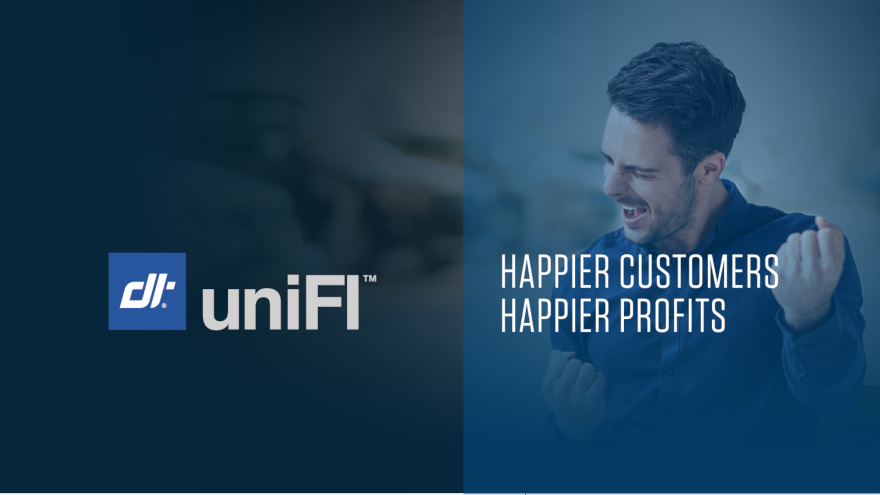Cognomotiv, a provider of real-time data services that certify the safety, security and proper functioning of modern vehicles at runtime, recently introduced its board of advisers; a group that includes former high-ranking executives at General Motors and Enterprise Holdings.
The company highlighted this team of entrepreneurs and industry luminaries will bring deep automotive, cybersecurity, technology and legal expertise and will play a key role in helping to guide Cognomotiv’s strategy and technical direction.
The board now includes:
• Amr Awadallah is the founder and CTO of Cloudera. Previously, he served as vice president of product intelligence engineering at Yahoo and ran one of the very first organizations to use Hadoop for data analysis and business intelligence. Awadallah joined Yahoo following the acquisition of his first startup, VivaSmart, in July 2000.
• Robin Campbell is the global co-chair of the data privacy and cybersecurity practice group at Squire Patton Boggs, a top 10 global law firm where she specializes in complex, cutting-edge legal advice, including expertise in autonomous vehicle technology, connected cars, IoT, data monetization and online tracking technologies.
• Lou Hughes has held senior leadership positions throughout his career. He was president and chief operating officer of Lockheed Martin. Prior to Lockheed, he was executive vice president at General Motors, where he held progressively more responsible positions for more than 25 years, including president of GM International Operations, president of GM Europe, chairman of Adam Opel AG and chairman of Saab Automobile.
• Lee Kaplan built his career at Enterprise Holdings, starting in 1985. Now retired, he most recently served as senior vice president and chief administration officer and was responsible for overseeing legal, risk, mergers and acquisitions, corporate venture and strategic planning.
• Sasha Ostojic was senior vice president engineering at Cruise Automation, an autonomous vehicle technology company owned by General Motors and Softbank. He is also a fellow and adviser at venture fund Playground Global, and serves on the advisory boards of other companies including Zoox (autonomous driving) and Deepen AI (intelligent data tools for autonomous systems).
“Cognomotiv is a fast-growing startup focused on bringing real-time data technologies to automotive and transportation companies to ensure the safety and security of the next wave of new transportation services, from today’s connected cars to the fully autonomous vehicles of the future,” said Hadi Nahari, founder and chief executive officer of Cognomotiv.
“We are truly honored to have such a distinguished advisory board, composed of global business leaders who have a unique mix of technical and regulatory knowledge across automotive, data and cybersecurity industries,” Nahari continued.
“We could not have found a better blend of talent or a more collaborative group of advisors to help us chart the best direction for Cognomotiv,” Nahari went on to say.
FICO recently learned its collection of patents grew by five.
Federal officials recently awarded five new patents to the Silicon Valley analytic software firm related to fraud, artificial intelligence (AI) and advanced analytics. In total, FICO currently holds 192 U.S. and foreign patents, and the company has 93 pending patent applications.
Two of the patents are connected to analytic technology used by the FICO Falcon Platform for fraud management:
• Detection of Compromise of Merchants, ATMS and Networks relates to the generation of compromise profiles for financial accounts based on reported fraud data of a payment account and merchant device. These compromise profiles accelerate detection of fraud.
• Card Fraud Detection Utilizing Real-Time Identification of Merchant Test Sites covers a system and method for detecting when criminals are “testing” compromised cards, by using real-time merchant profiles and specialized scoring models.
FICO inventors also received three patents related to analytics and decision management:
• Efficiently Representing Complex Score Models can transform predictive models into a software program for deployment in a rules engine, helping IT departments solve the problem of operationalizing analytics. This technology is integrated in FICO Blaze Advisor decision rules management system, part of the FICO Decision Management Suite.
• Automatic Modeling Farmer covers an AI system that automatically can develop and evaluate a large number of possible predictive models in order to produce optimal models. This is a streamlined modeling process to enable quick development of large-scale models using Big Data, and is used by FICO data scientists to identify candidate data sources with the most predictive promise.
• Systems and Methods to Improve Decision Management Project Testing is an invention that can visualize the validation status of components of an executable decision management project, which improves project testing. This technology is integrated in FICO Origination Manager.
“This is an exciting time for analytics and decision management, and FICO’s inventions are propelling change in this field,” said Stuart Wells, FICO’s chief product and technology officer. “Our data scientists continue to be at the forefront of the AI revolution and the progress in intelligent decision automation.”
One of the first honorees highlighted among Women in Auto Finance during Used Car Week 2018 — Jennifer Reid of Equifax — delved into an array of topics with Nick, including the subscription model as well as how companies in the auto-finance space are going to handle future technological challenges.
Reid also shared some suggestions on how collaborative efforts could be the pathway for significant fintech advancement this year and beyond.
The podcast discussion can be found below.
Download and subscribe to the Auto Remarketing Podcast on iTunes or on Google Play.
You can also listen to the latest episode in the window below.
Catch the latest episodes on the Auto Remarketing Podcast homepage and on our Soundcloud page.
Please complete our audience survey; we appreciate your feedback.
While facing challenges on multiple fronts, report findings declared that changing customer behaviors and demands should be fueling change in the service and products retail banks are offering. Those assertions arrived as part of an in-depth study released on Wednesday by banking software company Temenos.
The report, written by the Economist Intelligence Unit (EIU) on behalf of Temenos and titled, "Whose customer are you? The reality of digital banking in North America," explored the developing fintech situation for retail banks in North America.
The regional report emphasized the need for North American retail banks to further embrace change by developing their digital marketing and engagement (cited by 53 percent of respondents) and improving product agility (cited by 49 percent).
The report also noted that when it comes to preparing for digital change, American banks, in particular, need to examine the experiences of Europe and Asia-Pacific in creating a one-stop digital journey for their customers. Authors found that those institutions with a global footprint especially can learn from Europe's open banking experience.
Although concerns about regulatory fines and recompense orders are higher in North America (56 percent versus 43 percent globally), the report pointed out there is space for banks to work together to overcome the confusing mesh of federal and state regulations.
The report goes on to note that banks in North America are already beginning to come together to collaborate — a necessary effort in order to build a truly modern banking system that supports innovation.
“North American banks need to be able to respond better to how their customers live now in terms of their digital offerings if they are to remain truly competitive against neo and challenger banks,” said Renee Friedman, editor of the report from the Economist Intelligence Unit.
Other key report highlights included:
—North American bankers see their current business model evolving to develop niche propositions for their clients, more so than their global counterparts do (71 percent versus 61 percent).
—More North American bankers (87 percent) believe that the platformization of banking and other services through a single-entry point will steer the market than their global counterparts (78 percent).
—Retail banks across North America are focusing their digital investment on cyber security (76 percent).
—North American bankers consider conforming to data protection and privacy regulation to be the biggest challenge their company faces concerning data and third-party access (31 percent versus 21 percent globally).
—North American banks’ innovation strategies are focused on investing in fintech start-ups (54 percent).
The Economist Intelligence Unit surveyed 400 global banking executives about the challenges retail banks expect to face between now and 2020, and the strategies they are deploying in response. Orchestrators said 51 percent of respondents were at C-Suite level and 10 percent were board members.
The North America report was based on 100 respondents from North America (the U.S. and Canada) and was supplemented with in-depth interviews with senior executives from leading regional banks.
“Though we have strict regulations in place, nevertheless disruption is happening here in North America. We are seeing exciting developments across the region as the banking industry explores what it means to bank in a digital world,” said Emily Steele, Temenos’ president for North America.
“Incumbent banks are setting up digital banks alongside their own operations, challenger banks are popping up, and now we are starting to see fintechs moving to become banks themselves,” Steele continued.
“Banks are awakening to the need to personalize and contextualize their digital products and services, and offer customers great customer journeys, in order to compete and remain successful,” she went on to say.
The entire report can be downloaded here.
CompliancePoint is looking to find vulnerabilities before data-driven miscreants find a pathway to leverage company information in unsavory ways.
CompliancePoint, a leading provider of information security and risk management services for compliance and data security, recently established a data privacy solutions focus for the automotive industry, with resources to protect manufacturers, auto finance companies, dealers and other users of automotive data.
In 2018, CompliancePoint contends more than 100 automotive manufacturing companies including General Motors, Fiat Chrysler, Tesla, Ford, Toyota and Volkswagen experienced a data breach exposing trade secrets from the OEM.
“Data privacy and trade secrets are crucial components in the automotive industry,” CompliancePoint said. “A data breach can cost millions in monetary value, not including the loss of priceless trade secrets that lead to unfair advantages to competitors when crucial data is compromised.”
According to Forbes, CompliancePoint indicated it can take companies an average of 200 days to identify a data breach, and another 70 days to contain in. CompliancePoint offers cybersecurity assessments to automotive companies, which are designed to prevent potential liabilities and mitigate risk by protecting security framework.
Some key services include mobile and wireless testing, web application testing and data breach attempt response.
“Automotive companies can strengthen their data security, lower operational costs, and simplify their compliance process,” CompliancePoint said.
Vulnerability and penetration testing (PEN Testing) are performed to expose known and unknown weaknesses through experts who attempt to hack the automotive organizations' web systems. PEN tests further identify areas of weakness that put an automotive organization at risk.
CompliancePoint said it can provide a complete cybersecurity solution for automotive organizations through cyber threat assessments and quality results that are crucial to identifying issues that can leave an automaker at risk.
“CompliancePoint further works to resolve found issues, offering a comprehensive yet proactive approach to assessing cyber threats,” the company said. “Risk management provides automotive organizations with monitoring solutions and attentiveness that is needed for real security and peace of mind.”
For more details, go to www.compliancepoint.com.
If Benjamin Franklin worked in auto finance today, he might amend his famous quote about nothing being certain except death and taxes to include “and compliance.”
Creditors and auto lenders must adhere to a dizzying array of federal and state requirements designed to defend consumers against predatory business practices. Such mandates are on the rise, leaving many lenders aiming to navigate the intersection of quickly evolving technologies and growing demands for data privacy. Failure to demonstrate compliance can lead to public embarrassment and business-breaking penalties including massive fines, lawsuits and even jail time.
Auto lenders seeking to protect both their customers’ rights and their own portfolios should ready themselves in one area in particular: global positioning system (GPS)-enabled, vehicle-tracking technologies installed in subprime-financed vehicles. Millions of these vehicles are already on the road and more join them every day. While incredibly popular, these technology-assisted loan programs are also drawing increased scrutiny from federal and state governments and the public to ensure that lenders treat consumers responsibly.
To succeed in this environment, auto lenders developing or reviewing their compliance strategies need to know three things:
1. The current regulatory landscape and public perception of GPS-enabled vehicle-tracking technologies
2. What they need to do to ensure compliance
3. That the providers of the vehicle-tracking systems they use are qualified and reliable
Current landscape
GPS-enabled technologies have helped revolutionize auto financing by permitting lenders to offer loans to many drivers who otherwise would not qualify. Each side benefits: Dealers can more quickly locate and reacquire vehicles from delinquent loan recipients, and recipients in good standing get the mobility they need and the opportunity to improve their credit scores.
The spread of these systems has raised compliance-related issues. Auto lenders must therefore be scrupulous in complying with government rules on proper use of GPS data as part of non-discrimination and other consumer protection practices.
Not doing so can have dire consequences. Regulators hold the end user of the technology responsible for protecting consumers. That means if a vendor mishandles data or otherwise fails to uphold compliance requirements, the finance company is liable. Knowing the buck stops with you makes knowing your responsibilities – and ensuring your technology provider does, too – essential.
Federal requirements
Auto finance organizations answer to many federal and state regulators, which dictate compliance rules and determine how auto lenders can use specific technologies, including GPS-enabled vehicle-tracking systems.
At the federal level, auto lenders must meet requirements from the Consumer Finance Protection Bureau (CFPB), created through the 2013 Dodd-Frank Act. Specific federal regulations that dealers must satisfy to avoid unfair, deceptive, and abusive acts and practices (UDAAPs) as defined in Dodd-Frank include:
● Equal Credit Opportunity Act (ECOA) Regulation B
● Fair Credit Reporting Act (FCRA) Regulation V
● Graham-Leach-Bliley Act (GLBA) Regulation P
● Truth in Lending Act Regulation Z
Dealers have to be aware of how international regulations such as the European Union General Data Protection Regulation (GDPR) could affect them as well.
State requirements
Maintaining compliance at the state level can be even more complicated than at the federal level. For each state in which they operate, auto lenders should understand and ensure they comply with:
● State regulations on GPS and vehicle-tracking systems
● Uniform Commercial Code requirements
● Requirements for communicating with loan recipients about loan terms, the capabilities of the technology and how it will be used
● Requirements for disclosure and penalties for nondisclosure
Additionally, auto lenders should know the positions of relevant state consumer protection agencies and state attorneys general on GPS-enabled technology.
Best practices
To achieve compliance at both the federal and state levels, auto lenders should:
● Ensure staff (both those installing the equipment and those using it) are sufficiently and regularly trained in the technology’s proper application
● Always disclose the presence of the technology in the vehicle, and clearly explain how and when it operates and the type(s) of data it collects
● Track and review complaints to identify potential risks to consumers or violations of law
Other best practices are available at resources including CFPB, the National Automobile Finance Association (NAF Association) and the National Independent Automobile Dealers Association (NIADA).
Choosing a provider
Dealerships need to trust that any technology provider they use — and especially those for GPS-enabled systems — understands current compliance requirements and can help customers more easily meet those requirements and mitigate risks. When shopping for systems, auto lenders should assess vendors’ preparation and transparency in answering key questions, including:
● What track record and product features do they offer related to compliance with federal and state regulations?
● How does the reliability, scalability and ease of use of their technology assist with compliance?
● How willing are they to work with customers on compliance audits and tracking and resolving complaints?
Armed with the right mindset and information, auto lenders can improve their ability to know a compliant solution when they see one and distinguish a good potential partner from a bad one. By doing so, you can focus on your core operations and boost customer confidence in your business, secure in the knowledge that you are protecting your customers and your portfolio from compliance-related risk.
Bill Caan is national sales manager for CalAmp, a telematics pioneer leading transformation in the connected vehicle and industrial internet of machines marketplace.
Sagent Lending Technologies recently announced the appointment of Robert Johnson to the executive leadership team as VP and chief sales officer with the responsibility to lead sales and account management for the full suite of Sagent auto finance solutions.
Johnson brings more than 25 years of automotive finance and financial technology expertise to this role to further accelerate the market leadership of Sagent Lending Technologies in technology and services for originations, servicing and business process operations.
The company indicated Hernan Lardiez continues to lead the sale and account management for Sagent mortgage solutions. Management highlighted the two lines of business, auto and mortgage lending, for Sagent are now being led by two industry veterans to better the position the company for growth.
“I’ve seen firsthand the dedication that Sagent Lending Technologies has to their clients and the industry, and I believe they are uniquely positioned to address the transformation occurring in the auto finance market,” Johnson said regarding his new role. “I joined Sagent due to the great respect I have for their highly talented team, their vision, and their high standards and values.”
Sagent Lending Technologies chief executive officer Bret Leech added, “Robert is a recognized leader in auto finance technology and we are excited to have him join the Sagent team today. Our clients will directly benefit from his expertise and insights as together we make the auto lending experience better for everyone,”
“This is a real testament to how we create value by partnering with clients and the lending community as Sagent Lending Technologies,” Leech went on to say.
Technologically forward consumers often order their coffee ahead of time and pick it up at the counter, spending less time in the shop than it took you to read this sentence.
Well, Dealertrack wants to help dealerships and finance companies serve those consumers who want to purchase an SUV nearly as fast as that latte. On Monday, Dealertrack announced a new F&I software platform dubbed Dealertrack uniFI.
Auto Fin Journal connected with Cheryl Miller, vice president and general manager of Dealertrack F&I Solutions, in advance of Monday’s official launch to discuss how the vehicle-buying process has changed since Dealertrack came onto the scene.
“Dealertrack was the original fintech. We created the electronic path between the dealers and the lenders,” Miller said. As the consumer needs have evolved and the dealer needs have evolved, that’s taken it to a whole new level of expectations in the market. If you think about the consumer thought process of if I can go on any website for any retailer and buy something, why hasn’t buying a car become much easier?
“When we started looking at the workflows of the different systems, and Cox Automotive started coming together with all of the solutions it can bring to the market,” she continued, “we started down a journey about how do we look at this workflow, and how do we make it more efficient?
“There are three key players in the transaction, the consumer, the dealer and the lender. We want to make a much better experience for all through the pipeline. The consumer has expectations, and the dealer wants to satisfy those expectations,” Miller went on to say.
The company highlighted the new platform is designed to streamline the vehicle-buying process for consumers, dealers, finance companies and warranty providers by offering a single platform that seamlessly can connect the entire deal process with open integration.
Dealertrack uniFI addresses a major pain point for consumers, dealers and lenders. Less than half of consumers are satisfied with the three hours it takes on average to finalize their vehicle purchase at a dealership, according to Cox Automotive’s 2018 Car Buyer Journey Study.
Dealers recognize the issue with 69 percent concerned about the need to deliver a better customer experience and increase the efficiency of their sales process, according to 2018 Cox Automotive Dealer Communication & Operations Study.
On the finance-company side, Dealertrack acknowledged delays often occur around multiple systems requiring rekeying of data and the error rate on paper contracts.
This final stage can be complicated with different systems handling different parts of the process, such as credit checks, contract applications, taxes, titling and trade-in values. Dealership staff navigate on average more than six different systems to finalize a sale, a Cox Automotive poll showed.
Dealertrack uniFI can bring together these different systems to create a seamless F&I solution. Instead of switching between multiple systems and re-entering data each time, dealership staff can use Dealertrack uniFI to run credit checks, submit credit applications, structure deals and calculate accurate payments, add aftermarket products, and speed trade-in payoff and title release.
Dealertrack highlighted this single platform also can generates compliance-specific documents that meet federal laws and regulations and creates a check-list to track actions — all in one digital deal jacket. Dealertrack uniFI connects both online and in-store interactions, making it easier to seamlessly track the entire car-buying experience for each customer.
“After our upgrade to the new Dealertrack uniFI platform, I’ve experienced a level of efficiency that gives me both speed and accuracy and allows me to work more deals for more customers in a shorter period of time,” said Richard Cirami, finance director of North Shore Honda in Glen Head, N.Y., an early customer of Dealertrack uniFI.
Dealertrack uniFI can streamline the process by creating a single system built as an open platform to make it easier to connect various systems needed to handle different parts of a car deal. The open platform can allow Dealertrack uniFI to work with other Cox Automotive solutions, solutions from other providers as well as with Dealertrack’s network of more than 1,600 auto finance institutions.
“F&I is the backbone of any dealership, and Dealertrack uniFI has made a significant impact on our business by making our F&I process faster from start to finish,” said Joe Speaker, sales manager for Neuwirth Cars On Market in Wilmington, N.C., who’s also an early customer of Dealertrack uniFI.
“I now utilize more lenders and the faster workflow has made me a more valuable employee. The quicker turnaround time in F&I also means happier customers and better CSI scores,” Speaker continued.
Miller emphasized to Auto Fin Journal that dealerships that adopt this new platform quickly can enjoy similar results to North Shore Honda and Neuwirth Cars On Market.
“The car-buying experience should be an exciting time for consumers, but it’s often lengthened by a set of disjointed technologies required to finalize the sale,” Miller said. “Dealertrack uniFI creates a single technology platform to simplify the process. Dealership sales staff spend less time logging into and typing data into various systems, enabling customers to enjoy their new vehicles more quickly and freeing dealers to focus more attention on serving customers.
“In today’s fast-paced world, we could all use some extra time,” Miller added. “Dealertrack uniFI is one way that Cox Automotive is trying to help both customers and dealers gain back time that they can spend on more enjoyable and productive activities.”
A trio of companies are joining forces to revamp the credit score.
Experian, FICO and Finicity announced a new credit score this week during the Money 20/20 USA conference. The new score, called UltraFICO Score, leverages account aggregation technology and distribution capability from Experian and Finicity to help consumers improve access to credit by tapping into consumer-contributed data, such as checking, savings and money market account data, that reflects responsible financial management activity.
With UltraFICO Score, the companies explained that a consumer grants permission to contribute information from banking statements, including the length of time accounts have been open, frequency of activity and evidence of saving, which can be electronically read by Finicity and combined with consumer credit information from Experian to provide an enhanced view of positive financial behavior.
Experian, FICO and Finicity estimate this new score has the potential to improve credit access for the majority of Americans and is particularly relevant for those who fall in the grey area in terms of credit scores (scores in the upper 500s to lower 600s) or fall just below a finance company’s cut-off score.
Consumers who are relatively new to credit with limited history or those with previous financial distress that are getting back on their feet stand to benefit the most, according to the companies.
“This changes the whole dynamic of the lender and customer relationship,” said Jim Wehmann, executive vice president of scores at FICO. “It empowers consumers to have greater control over the information that is being used in making credit risk decisions. It also enables a deeper dialogue between the consumer and lenders to help both parties make better financial decisions.
“It’s a game changer,” Wehmann added.
The companies indicated the UltraFICO Score will launch as a pilot program in early 2019. The pilot is designed to validate the score and assess willingness of consumers to share financial data for a potentially higher score.
The company noted pilot participants were sourced across various lines of businesses.
The model developed by FICO will be implemented through Experian and integrated into a finance company’s existing operational workflow. Borrower data will be aggregated through Finicity.
Officials pointed out the UltraFICO Score builds off of the framework of the base FICO Score, and is designed to reflect the same odds-to-score relationship so that the new score can be easily incorporated into lending strategies and origination account management systems.
The UltraFICO Score is slated to be broadly available to finance companies during the middle of next year.
“As the consumer’s bureau, our goal is to help empower consumers and to give better access to credit for more consumers, all while promoting fair lending,” said Alex Lintner, president of consumer information services at Experian.
“Through this project, we’ve found a new way to use consumer-permissioned data that allows lenders to make better decisions and helps consumers gain access to credit,” Linter continued.
Finicity chief executive officer Steve Smith went on to say, “This approach allows Americans to benefit from positive financial behaviors We are proud to have created a new way for consumers to share financial information, safely and securely so that a new UltraFICO Score can be created.”
To learn more, visit www.fico.com/en/products/ultrafico-score or www.fico.com/ultrafico.
Dealertrack now has a closer relationship with two captive finance companies.
On Monday, Dealertrack announced the expansion of its partnership with Hyundai Motor Finance and Kia Motors Finance making Dealertrack Contracting available in 39 states, including Texas, California, New York, Florida and Arizona.
Dealertrack’s proprietary contracting offering can enable Hyundai and Kia dealerships to more accurately submit automotive contracts electronically to their captives in real-time, resulting in funding as fast as same day.
Dealertrack Contracting, which is expected to roll out across all 50 states by the end of October, is designed to eliminate the cost and hassle of the traditional and mistake-prone approach with the use of electronic validations, mobile signing and immediate delivery of funding packages.
Dealertrack believes this milestone announcement underscores the scaled growth of electronic contracting usage by captive finance companies, with Hyundai Motor Finance’s and Kia Motors Finance’s enrollment rate nearing 35 percent across the manufacturer’s more than 1,600 dealers nationwide.
“Our relationship with Hyundai Motor Finance and Kia Motors Finance is strengthened by our contracting expansion that helps lenders and dealers efficiently conduct business while meeting car shoppers’ rising expectations for a better car buying experience,” said Cheryl Miller, vice president and general manager for Dealertrack’s F&I dealer and lender solutions.
“Consumers want a fluid, digitally-driven dealership experience, and Dealertrack Contracting provides Hyundai and Kia dealers the ability to deliver that experience to their customers,” Miller continued.
One of Hyundai Capital’s pilot dealers who has reached a high utilization rate shortly after enrollment with Dealertrack Contracting stated it’s all about efficiencies.
“Electronic contracting comes with plenty of benefits like same-day funding, reduction of paperwork and verifying all data upfront. Funding through electronic contracts is as fast as one hour, which helps us save time,” said Mike Lahham, general manager of Kia Downtown Los Angeles.
“Electronic contracting has definitely benefited our store by making it easy for us to minimize mistakes as the system verifies all data before signing the contract. From a profitability point of view, it increases our bottom line by having a faster cash flow in our system as well,” Lahham added.
Dealertrack Contracting can replace the traditional approach of paper contracting that relies upon both fax machines and mail. The solution also can mitigate manual data entry and calculations, paper contracts with “wet” signatures and reduces documents needed to mail to lenders.
As a result, Dealertrack contends the technology can cut expenses, enhance contract accuracy and the customer experience, reduce the amount of time it takes to submit a contract and get funding the same day in most cases.
Dealertrack and Hyundai Capital America’s relationship began in 2003 when Hyundai Motor Finance and Kia Motors adopted Dealertrack’s Credit Applications tool. Now, with the expanded partnership to further streamline F&I processes and contracting efficiency with Dealertrack Contracting, Hyundai retailers can electronically rate, remit and submit aftermarket products to Hyundai Motor America and the final contract to Hyundai Motor Finance.
The companies say the result is a simplified deal flow process, streamlined application process, less paper and faster funding.
“Our goal was to launch electronic contracting in all fifty states and to enroll 25 percent of our dealers by the end of 2018. We have achieved that goal three months early,” said Eckart Klumpp, senior vice president of sales and marketing at Hyundai Capital America.
“Dealer and customer satisfaction continue to be top of mind for us. Dealertrack’s electronic contracting allows us to efficiently service our dealers and provide them with same-day funding,” Klumpp continued.
“This is a rewarding initiative and HCA will continue to invest in capabilities to further drive our dealer adoption of electronic contracting and enhance the overall customer vehicle purchase journey,” he went on to say.












